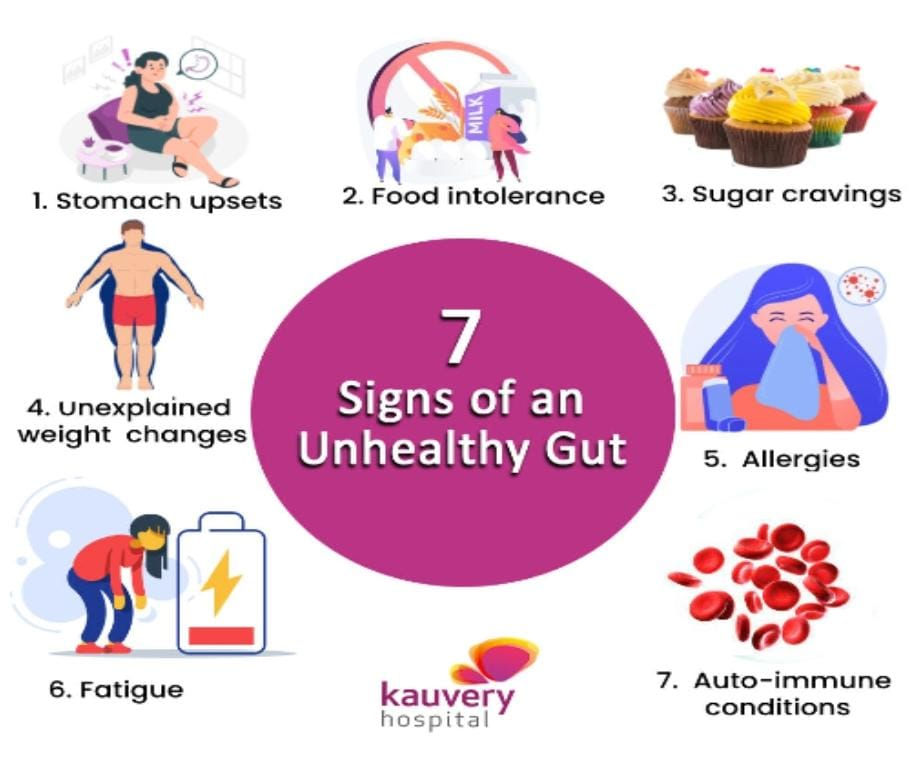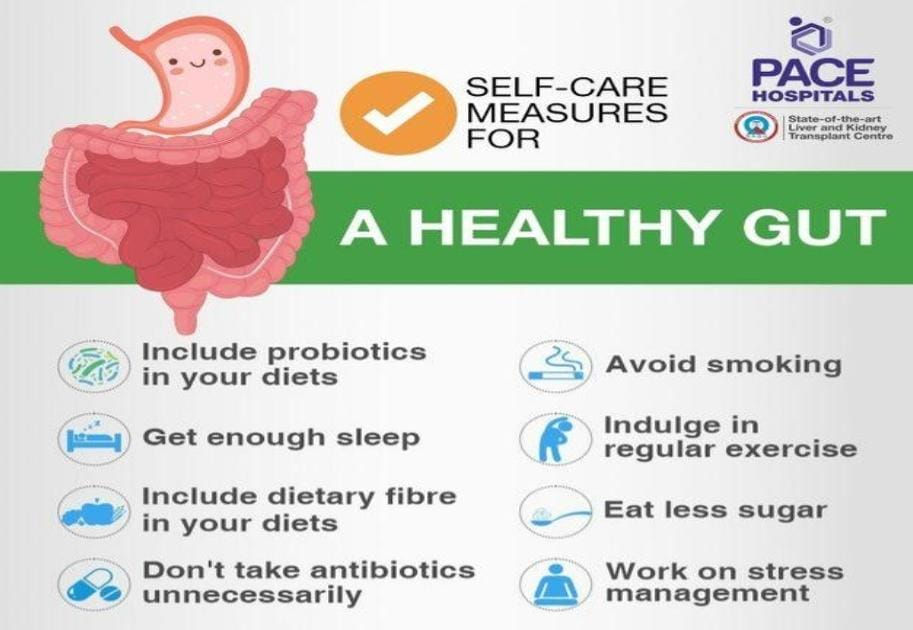Gut Health and Microbiome
- sciforum

- Sep 4, 2025
- 6 min read
Contents:
Abstract
Introduction
Understanding the Gut Microbiome
Factors Influencing Gut Microbiome
Consequences of Imbalance (Gut Dysbiosis)
Strategies to Improve Gut Health
Conclusion
Reference
Abstract:
The gut microbiome, comprising trillions of microorganisms that reside in the host's gastrointestinal tract, has emerged as a critical determinant of health and disease. Mostly good, microbes live within our gastrointestinal tract and are responsible for vital metabolic, immune, and nutritional functions. Gut Dysbiosis, meaning an imbalance of the microbiome, is associated with many common diseases, including obesity, diabetes, and neuropsychiatric disorders. This article reviews recent findings on the role of the gut microbiome in maintaining health, and discusses dietary and lifestyle strategies that can promote microbial balance.
Introduction:
The human microbiome is a collection of trillions of tiny organisms, including bacteria, archaea, viruses, and other eukaryotic microbes, that reside in and on our bodies, particularly in the gut. When the balance of these microbes is disturbed, it can contribute to various health problems, including digestive issues, infections, obesity, diabetes, and even mental health disorders. Traditionally, scientists had to grow microbes in a lab, but the advanced methods are:
16S rRNA gene sequencing: Identifies bacteria by analyzing their genetic material and comparing it to a known database.
Metagenomics: Studies all microbial DNA in a sample, showing not only which microbes are present but also what functions they might perform.
Understanding the Gut Microbiome:

The gut microbiome is the complex community of trillions of bacteria and other microbes in our intestines, is now recognized as a key organ influencing health. These microbes contain enzymes our bodies lack, allowing them to digest complex food components and produce beneficial compounds. In short, a healthy microbiome maximizes nutrient extraction from the diet and contributes vital nutrients and metabolites to the host. Some of the important works done by these microbiomes are given below:
Immune System Development and Function
About 80% of the body's immune cells live in the gut. The gut microbiota is crucial for training and regulating the immune system. It acts as a natural barrier by covering the intestinal walls and preventing harmful microbes from entering the body. The microbiota is integral to educating the immune system to function properly as it trains the immune cells to recognise the difference between harmless substances and harmful pathogens, which helps the body to respond appropriately.
Digestion
Many gut bacteria break down complex carbohydrates and fibers into short-chain fatty acids (SCFAs) that fuel colon cells and serve as signaling molecules.
Gut-Brain axis and Mental health
The gut-brain axis is a bidirectional communication system between the gut and the brain. A gut–brain axis connects the intestinal microbiome with the central nervous system. Signals from gut microbes reach the brain via neural routes (notably the vagus nerve), the immune system, and Small molecules circulating in the blood. Emerging evidence shows gut bacteria Influence mood, stress responses, and Cognition. Germ-free mice (lacking microbes) exhibit altered anxiety-like behavior and neurochemical imbalance, which can be normalized when gut microbes are restored.
Factors Influencing Gut Microbiome:

Broadly, major influences include diet, medications (especially antibiotics), lifestyle choices, host genetics, environmental exposures, birth and early-life factors, and aging.
Internal factors
Genetics and Host Factors- Genes have a small effect on the gut microbiome. For example, twins share more similar bacteria than unrelated people, showing some heritable influence.e
Birth and Early-Life Factors- Babies born vaginally get microbes from their mother, while those born by cesarean receive more from the skin and environment. These early exposures shape gut health and immunity for li.fe
Age and Life Stage- The gut microbiome changes with age. At birth, it grows and matures through childhood and adolescence. In adulthood, it stays fairly stable but can still be influenced by diet and lifestyle. In older age, diversity usually decreases, and the balance of bacteria shifts.
External factors
Diet- Diet affects gut health by feeding beneficial bacteria—fiber and fermented foods help them grow, while processed and sugary foods can harm them.
Medications and Antibiotics, particularly broad-spectrum. One can significantly disturb the balance and diversity of gut bacteria. Even using them for a short time can have lasting effects, such as a higher risk of developing conditions like asthma and obesity, especially in children.
Lifestyle Factors- Exercise improves the diversity and boosts good bacteria in the gut, while smoking lowers gut richness and the number of beneficial bacteria. Alcohol, poor sleep, and chronic stress all negatively affect the gut through the gut-brain connection.
Environmental Exposures- Our surroundings affect gut bacteria. People living together share more similar microbes, while pets can bring in new, sometimes helpful bacteria. Exposure to soil, plants, and natural environments boosts microbial diversity. Meanwhile, pollution, processed foods, and frequent antibiotics can reduce this diversity.
Consequences of Imbalance (Gut Dysbiosis):

Gut dysbiosis means an imbalance in the gut microbiome, the large community of microbes living in our digestive system. In a healthy gut, these microbes exist in the right proportion and help in digestion, immunity, and keeping harmful germs under control. Dysbiosis happens when this balance is disturbed- for example, when useful microbes decrease or harmful ones increase. This imbalance can upset digestion and harm your overall health. Consequences of this imbalance are:
1)Infections
When dysbiosis happens, harmful germs can overgrow and your immune system weakens, making the body more prone to diseases. For example, an unbalanced gut can allow infections like C. difficile or H. pylori to take hold.
2)Obesity
An imbalanced gut microbiome makes the intestine extract more calories from the same amount of food, leading to extra energy being stored as fat. It also reduces the production of short-chain fatty acids that normally help regulate appetite. All this leads to obesity.
3)Diabetes
People with diabetes often show gut dysbiosis. An imbalance can raise inflammation and insulin resistance, making blood sugar harder to control, leading to Type 2 diabetes.
4)Neuropsychiatric disorders
When good bacteria are reduced, the gut makes fewer helpful chemicals like serotonin, which normally support mood and mental balance. At the same time, harmful bacteria and toxins increase inflammation, and these signals reach the brain. This imbalance affects brain function and causes anxiety, depression, and other mood-related problems.
Strategies to Improve Gut Health

Incorporate Probiotics & Synbiotics:
Probiotics: Helpful bacteria like Bifidobacterium and Lactobacillus can improve blood sugar control, lower HbA1c, and boost insulin sensitivity in people with type 2 diabetes.
Synbiotics: A mix of probiotics (good Bacteria) and prebiotics (their food) works even better to support a healthy gut.
Leverage Fermented Foods (Natural Probiotics)
Eating fermented foods regularly for just 3 weeks can improve mood, boost energy, reduce bloating, and increase healthy gut bacteria. It may also support immunity and metabolism.
Stay Physically Active
Regular exercise, like doing both aerobic and strength training four times a week, helps improve gut health in older adults. It reduces harmful bacteria, increases good bacteria, and improves the overall balance of gut microbes. A study on people aged 51-89 showed that long-term exercise keeps gut microbes more diverse and healthier.
Explore Intermittent Fasting(with caution)
Time-restricted eating and similar fasting methods may enhance gut barrier function, promote beneficial bacteria like Lachnospiraceae, and support auto-cleanup mechanisms. Some individuals (e.g., with IBS or IBD) may experience worsening symptoms. Personalization is key.
Reduce Stress and Improve Sleep
Chronic stress, poor sleep, repetitive diets, and overuse of medications (notably NSAIDs and antibiotics) can harm gut microbial diversity. Approaches like gut gardening are advocated by experts for overall well-being and resilient gut microbiota.
Conclusion
The gut microbiome plays a vital role in digestion, immunity, and even mental health. An imbalance, known as gut dysbiosis, can lead to obesity, diabetes, infections, and mood disorders. Factors like diet, antibiotics, lifestyle, genetics, and early-life exposures strongly shape the microbiome. A fiber-rich diet, probiotics, fermented foods, and regular exercise promote microbial diversity, while stress, poor sleep, smoking, and excess medications can harm it. Maintaining balance in the gut not only supports physical health but also emotional well-being.
With growing research, the microbiome is being recognized as a key target for preventive healthcare. Nurturing it through healthy choices is essential for long-term health and resilience.
Reference
National Library of Medicine- The importance of the gut microbiome and nutrition on health
Gut Microbiota for Health- Gut microbiota info
https://www.gutmicrobiotaforhealth.com/about-gut-microbiota-info/
National Library of Medicine- The gut microbiome in health and in diseases
Implication of Obesity and Gut Microbiome Dysbiosis in the Etiology of Colorectal Cancer
Dysbiosis of the gut microbiota in disease
Exposure to environmental pollutants selects for xenobiotic-degrading functions in the human gut microbiome
Cleveland Clinic-Gut Microbiome
https://my.clevelandclinic.org/health/body/25201-gut-microbiome
Exploring the gut microbiota: lifestyle choices, disease associations, and personal genomics https://www.frontiersin.org/journals/nutrition/articles/10.3389/fnut.2023.1225120/full
By: Anushka, Aryan & Neha

Comments